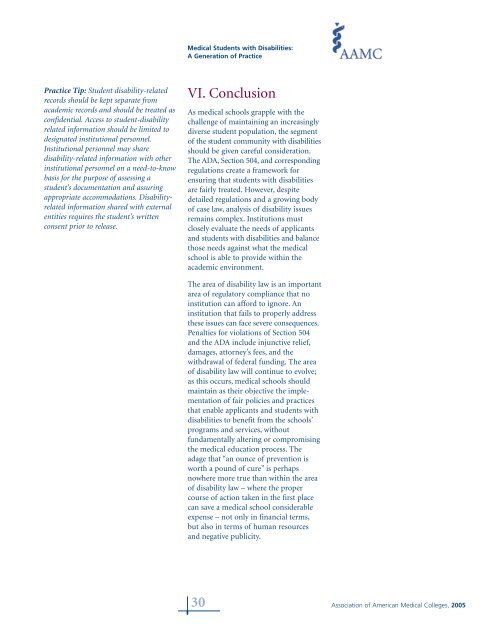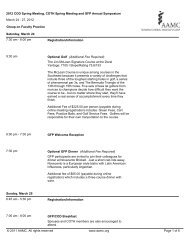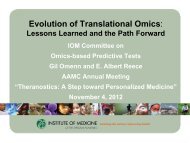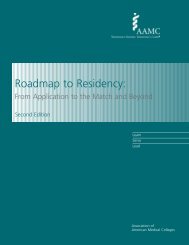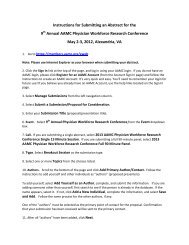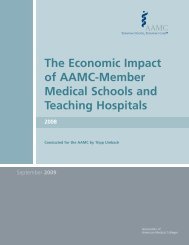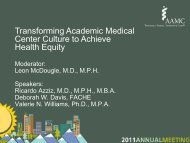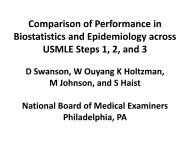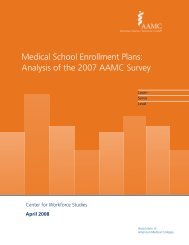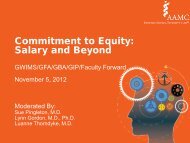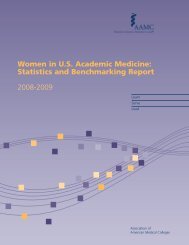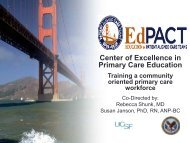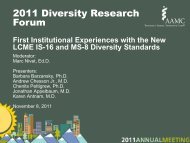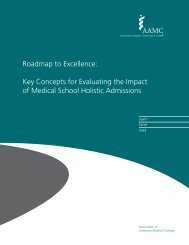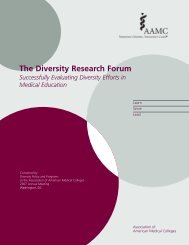Medical Students with Disabilities: A Generation of Practice
Medical Students with Disabilities: A Generation of Practice
Medical Students with Disabilities: A Generation of Practice
You also want an ePaper? Increase the reach of your titles
YUMPU automatically turns print PDFs into web optimized ePapers that Google loves.
<strong>Medical</strong> <strong>Students</strong> <strong>with</strong> <strong>Disabilities</strong>:<br />
A <strong>Generation</strong> <strong>of</strong> <strong>Practice</strong><br />
<strong>Practice</strong> Tip: Student disability-related<br />
records should be kept separate from<br />
academic records and should be treated as<br />
confidential. Access to student-disability<br />
related information should be limited to<br />
designated institutional personnel.<br />
Institutional personnel may share<br />
disability-related information <strong>with</strong> other<br />
institutional personnel on a need-to-know<br />
basis for the purpose <strong>of</strong> assessing a<br />
student’s documentation and assuring<br />
appropriate accommodations. Disabilityrelated<br />
information shared <strong>with</strong> external<br />
entities requires the student’s written<br />
consent prior to release.<br />
VI. Conclusion<br />
As medical schools grapple <strong>with</strong> the<br />
challenge <strong>of</strong> maintaining an increasingly<br />
diverse student population, the segment<br />
<strong>of</strong> the student community <strong>with</strong> disabilities<br />
should be given careful consideration.<br />
The ADA, Section 504, and corresponding<br />
regulations create a framework for<br />
ensuring that students <strong>with</strong> disabilities<br />
are fairly treated. However, despite<br />
detailed regulations and a growing body<br />
<strong>of</strong> case law, analysis <strong>of</strong> disability issues<br />
remains complex. Institutions must<br />
closely evaluate the needs <strong>of</strong> applicants<br />
and students <strong>with</strong> disabilities and balance<br />
those needs against what the medical<br />
school is able to provide <strong>with</strong>in the<br />
academic environment.<br />
The area <strong>of</strong> disability law is an important<br />
area <strong>of</strong> regulatory compliance that no<br />
institution can afford to ignore. An<br />
institution that fails to properly address<br />
these issues can face severe consequences.<br />
Penalties for violations <strong>of</strong> Section 504<br />
and the ADA include injunctive relief,<br />
damages, attorney’s fees, and the<br />
<strong>with</strong>drawal <strong>of</strong> federal funding. The area<br />
<strong>of</strong> disability law will continue to evolve;<br />
as this occurs, medical schools should<br />
maintain as their objective the implementation<br />
<strong>of</strong> fair policies and practices<br />
that enable applicants and students <strong>with</strong><br />
disabilities to benefit from the schools’<br />
programs and services, <strong>with</strong>out<br />
fundamentally altering or compromising<br />
the medical education process. The<br />
adage that “an ounce <strong>of</strong> prevention is<br />
worth a pound <strong>of</strong> cure” is perhaps<br />
nowhere more true than <strong>with</strong>in the area<br />
<strong>of</strong> disability law – where the proper<br />
course <strong>of</strong> action taken in the first place<br />
can save a medical school considerable<br />
expense – not only in financial terms,<br />
but also in terms <strong>of</strong> human resources<br />
and negative publicity.<br />
30 Association <strong>of</strong> American <strong>Medical</strong> Colleges, 2005


